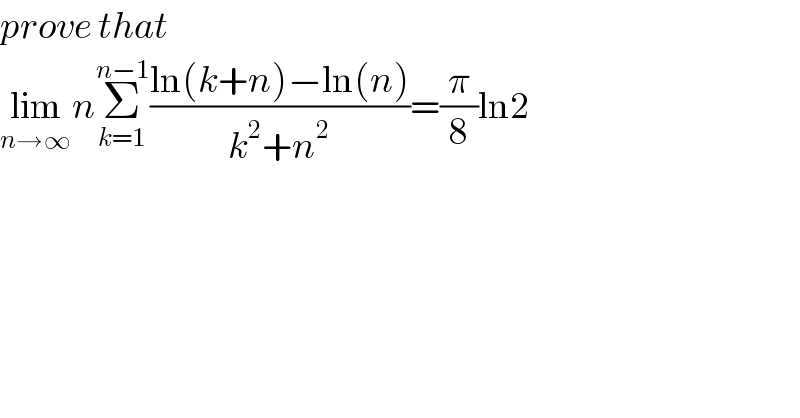
Question and Answers Forum
Question Number 111879 by mathdave last updated on 05/Sep/20

Answered by Dwaipayan Shikari last updated on 05/Sep/20
![lim_(n→∞) nΣ_(k=0) ^n ((log((k/n)+1))/(k^2 +n^2 ))=lim_(n→∞) (1/n)Σ_(k=0) ^n ((log((k/n)+1))/((k^2 /n^2 )+1)) =∫_0 ^1 ((log(x+1))/(x^2 +1))dx =∫_0 ^(π/4) ((log(tanθ+1))/(tan^2 θ+1)).sec^2 θ dθ =∫_0 ^(π/4) log(sinθ+cosθ)−log(cosθ) =∫_0 ^(π/4) log((√2))+log(((sinθ+cosθ)/( (√2))))−log(cosθ) dθ =∫_0 ^(π/4) (1/2)log(2)+[∫_0 ^(π/4) log(cos((π/4)−θ)−log(cosθ))]=I =(π/8)log(2)+I=(π/8)log(2) ((∫_0 ^(π/4) log(cos((π/4)−θ))−log(cosθ)=∫_0 ^(π/4) log(cosθ)−log(cos((π/4)−θ))=I 2I=0))](Q111894.png)
Commented by mathdave last updated on 05/Sep/20

Commented by mnjuly1970 last updated on 05/Sep/20

Commented by mathdave last updated on 05/Sep/20

